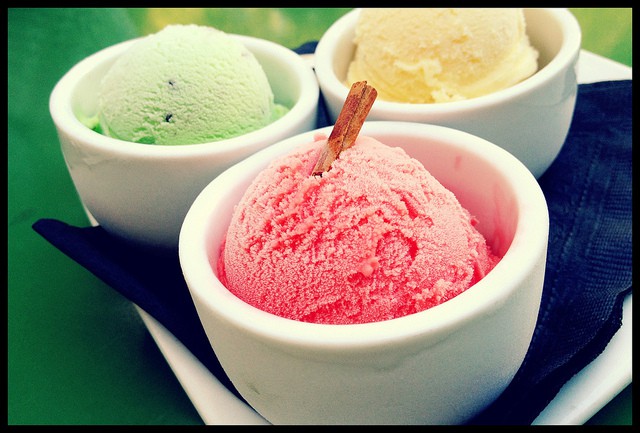The following post was written by an Anglo staff member ministering with Destino.
One of the things I love about doing ministry with Destino is that we value wholeness in one’s ethnic identity. Since our ministry’s mission is done in the context of a particular culture, we talk about culture a lot. Let me tell you–this has been interesting for a white guy to be a part of. I was thinking about some of the things I’ve been learning, and there were a few surprises.
I remember a time when I was really uncomfortable talking about race and ethnicity. There’s a few reasons for this. One of the common phrases we hear about race is “separate is inherently unequal,” from the Brown v. Board of Education Supreme Court decision. I think I had applied that to my thoughts about race and ethnicity: different means separate, and so if we are to be equal, then we must be the same. Another reason I’ve been afraid to talk about race and ethnicity is that I was afraid of saying something stupid or offensive. But over the years I’ve been able to make more friends with people who are of a different ethnicity than me, and the more we’ve gotten to know each other, the more we’ve all been able to talk and ask questions about our different cultures. It’s run the gamut from, “what’s that food called?” to “why do I feel like I’m interrupting people when I’m here?” or “why was I so offended by what so-and-so said?” These honest conversations have blessed me greatly, and have taught me about myself, about the world, and about God.
Anyway, here’s the first lesson I’m kind of currently distilling:
I am an “ethnic”. In my hometown there was an aisle at Walgreens for “Ethnic Hair Care Products.” In my town that meant products that African Americans use, but that white people don’t, by and large. At Shop ‘n Save there was also an “Ethnic Food” aisle, where one could find Bosnian canned goods, tortillas, and salsa that wasn’t Old El Paso brand. There’s a subtle but powerful idea that the way we speak affects the way we think. In this case, our language suggests that I am not ethnic. On forms and documents I do have a race, but “ethnic” is reserved for people who aren’t like me. So in other words “ethnic” means “different than me.” Have you ever said, “I wish my culture was more interesting” or “American culture is just so boring compared to…”? For me, I developed a love of travel and learning about different cultures, partly because I thought we were sort of devoid of culture.
My basic understanding of the world was that other cultures and customs exist beyond our borders, but they’re basically just different flavors of the way I do things. I am the basic model, and they are the variety.
Here’s another one of my favorite phrases: “plain ol’ vanilla.” Vanilla’s really just the plain ice cream, am I right? Well, if you’ve ever had good vanilla ice cream, then you know that’s wrong. It’s actually a legitimate flavor, worth enjoying on its own for what it is. Pistachio is not “green vanilla,” and orange sherbet is not just orange vanilla with a twist. Yet, we treat culture and ethnicity as if that were the case; as if, for example, Hispanic culture(s) were just “plain ol’ vanilla” plus some tropical fruits.
The first lesson I’ve learned about culture and ethnicity is that I have one! To be white American actually consists of something! If it’s the vanilla ice cream (I know…playing into the stereotype), then it’s a real flavor! If I consider our nation’s cultural variety to be just variations on me, I disrespect my own culture’s value, and diminish all the others as well by trying to reduce them!
There are a lot of well-intentioned “we’re all basically the same” sentiments out there, but I fear that “we’re all the same” usually means “I’m normal and you’re all like me but a little different.” Let’s face it, “you’re abnormal, but it’s ok” is really disrespectful at best, and has some destructive implications at worst.
Practically, I find it’s much more productive to talk about ethnic majority or ethnic minorities. That keeps us honest and helps us give respect to the way we are. I’m no more or less “normal” than my African American, Latino, Korean, or East African friends friends. When comparing two cultures, “Which one’s normal and which is ethnic?” is the wrong question.
Devin is on staff with Destino in St. Louis, MO. Originally posted on his blog.
Photo credit: Brian J. Matis.
